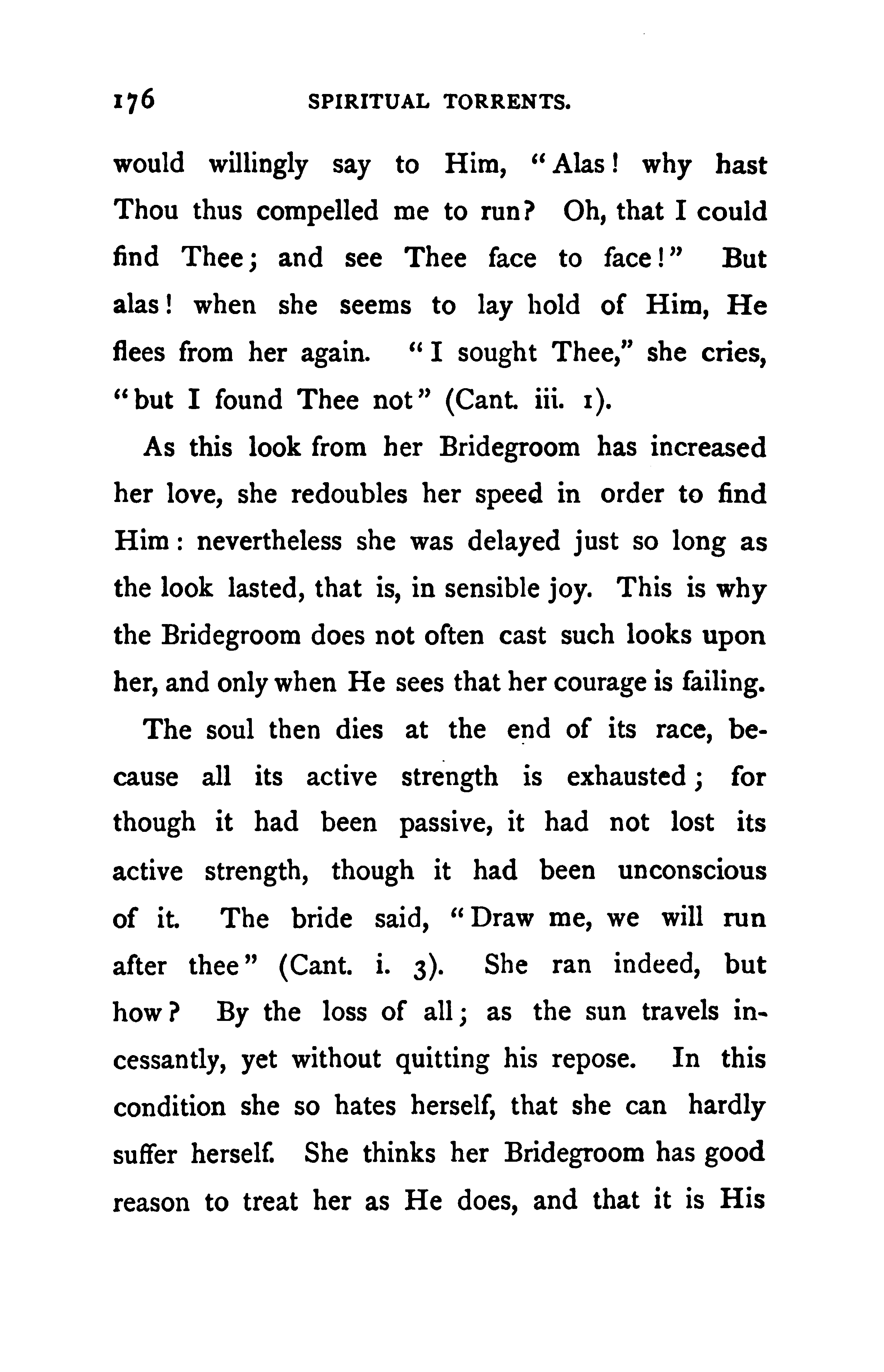would
willingly
say
to
Him,
**
Alas
!
why
hast
Thou
thus
compelled
me
to
run?
Oh,
that
I
could
find
Thee;
and
see
Thee
face
to
face!"
But
alas
!
when
she
seems
to
lay
hold
of
Him,
He
flees
from
her
again.
"
I
sought
Thee,"
she
cries,
**but
I
found
Thee
not"
(Cant
iii.
i).
As
this
look
from
her
Bridegroom
has
increased
her
love,
she
redoubles
her
speed
in
order
to
find
Him
:
nevertheless
she
was
delayed
just
so
long
as
the
look
lasted,
that
is,
in
sensible
joy.
This
is
why
the
Bridegroom
does
not
often
cast
such
looks
upon
her,
and
only
when
He
sees
that
her
courage
is
failing.
The
soul
then
dies
at
the
end
of
its
race,
be-cause
all
its
active
strength
is
exhausted
;
for
though
it
had
been
passive,
it
had
not
lost
its
active
strength,
though
it
had
been
unconscious
of
it
The
bride
said,
"Draw
me,
we
will
run
after
thee"
(Cant
i.
3).
She
ran
indeed,
but
how?
By
the
loss
of
all;
as
the
sun
travels
in-cessantly,
yet
without
quitting
his
repose.
In
this
condition
she
so
hates
herself,
that
she
can
hardly
suffer
herself.
She
thinks
her
Bridegroom
has
good
reason
to
treat
her
as
He
does,
and
that
it
is
His

